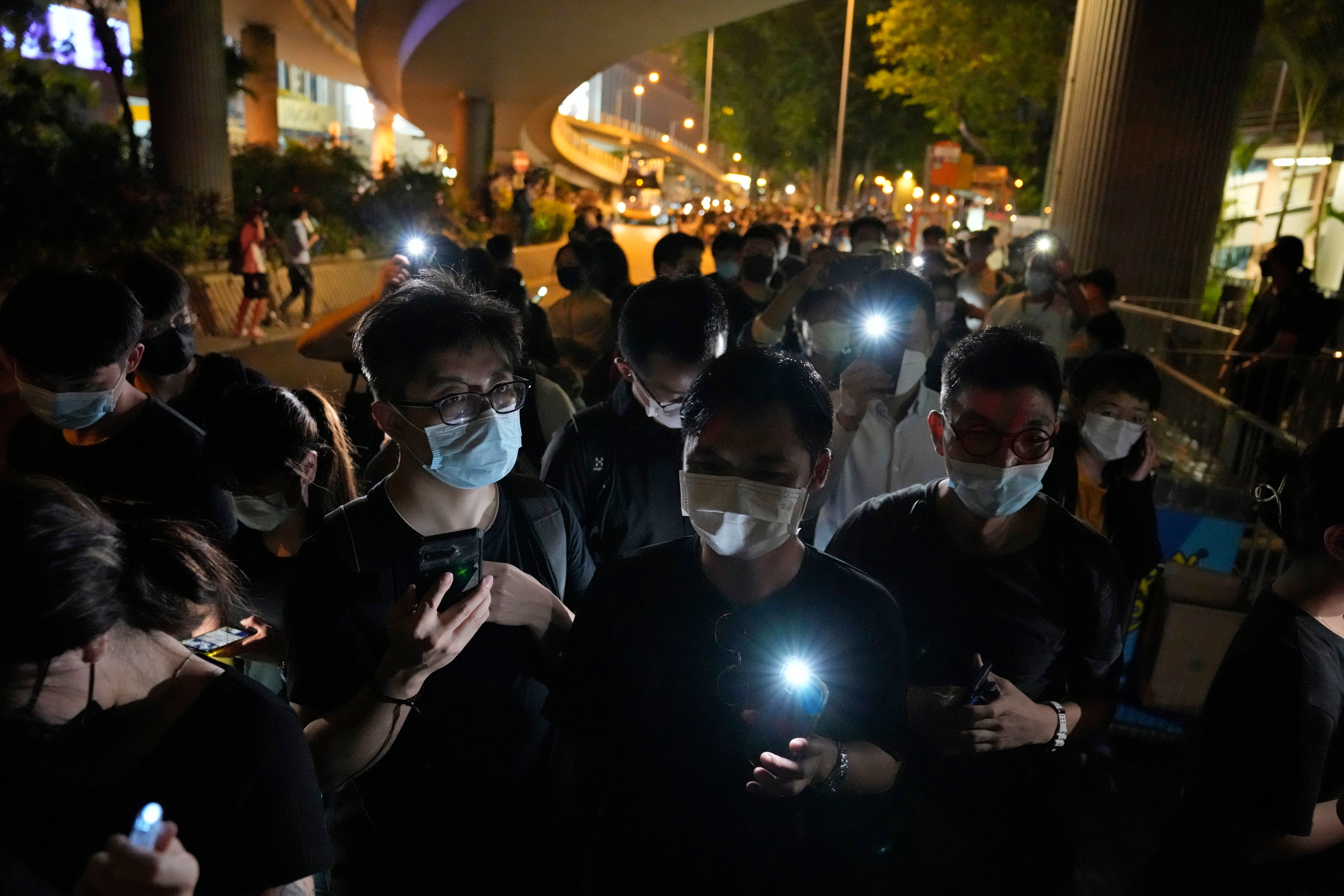Group behind Hong Kong's Tiananmen vigil denies foreign ties
The group behind the annual Tiananmen Square memorial vigil in Hong Kong says it will not cooperate with a national security investigation into the group’s activities

Your support helps us to tell the story
From reproductive rights to climate change to Big Tech, The Independent is on the ground when the story is developing. Whether it's investigating the financials of Elon Musk's pro-Trump PAC or producing our latest documentary, 'The A Word', which shines a light on the American women fighting for reproductive rights, we know how important it is to parse out the facts from the messaging.
At such a critical moment in US history, we need reporters on the ground. Your donation allows us to keep sending journalists to speak to both sides of the story.
The Independent is trusted by Americans across the entire political spectrum. And unlike many other quality news outlets, we choose not to lock Americans out of our reporting and analysis with paywalls. We believe quality journalism should be available to everyone, paid for by those who can afford it.
Your support makes all the difference.The group behind the annual Tiananmen Square memorial vigil in Hong Kong said Sunday it will not cooperate with police conducting a national security investigation into the group's activities, calling it an abuse of power.
Police notified the Hong Kong Alliance in Support of Patriotic Democratic Movements of China last month it was under investigation for working for foreign interests, an accusation it denied.
“This is a really bad precedent of the national security (police) abusing the power by arbitrarily labeling any civil organization as a foreign agent,” Chow Han Tung, vice chairwoman of the alliance, said at a news conference called to address the police investigation.
“The alliance strongly denies that we are any foreign agents," Chow said. "We are an organization that was founded during the 1989 democratic movement, it was founded by the Hong Kong people.”
The investigation is part of a broad crackdown on Hong Kong civil society following mass pro-democracy protests in 2019. Authorities have tightened control over the city with a sweeping national security law imposed by China's ruling Communist Party that effectively criminalized opposition to the government. The law and other changes have forced several civil organizations to disband or seen their leaders arrested.
The annual candlelight vigil honors the students who died when China’s military violently suppressed massive pro-democracy protests in Beijing's Tiananmen Square on June 4, 1989.
Hong Kong had been the only place in China allowed to hold such a commemoration, and in past years, tens of thousands of people gathered in Victoria Park to honor the dead. Smaller crowds gathered this year and in 2020 despite police banning the vigil, citing coronavirus restrictions on public gatherings.
Police had asked the alliance to hand over any information about groups they had worked with overseas or in Taiwan as well as contact information. They did not mention what specific incidents prompted the investigation.
Chow said the alliance has not been able to reach a consensus on whether to disband. It plans to hold a general meeting on Sept. 25 to discuss the matter again.
In August, the prominent Hong Kong Civil Human Rights Front, made up of a slew of member organizations, said it could no longer operate and chose to disband. The group organized large protests in 2019.
More than 100 pro-democracy activists have been arrested under Hong Kong's national security law, which outlaws subversion, secession, terrorism and foreign collusion to interfere in the city’s affairs. Many other activists have gone into exile abroad.
Critics say the law restricts freedoms Hong Kong was promised it could maintain for 50 years following the territory's 1997 handover to China from colonial Britain.
___
Wu reported from Taipei, Taiwan.